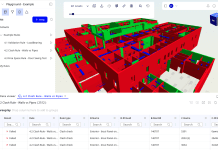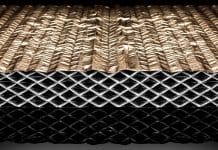With the NHS facing severe season pressures, offsite construction could provide patient-ready wards and theatres within a matter of weeks, says Alan Wilson, managing director of ModuleCo Healthcare
The NHS typically experiences an uplift in demand for healthcare services during the winter, due to the colder weather increasing environmental hazards and respiratory conditions, alongside cold and flu causing a surge in hospital pressures.
The Covid-19 pandemic has exacerbated the challenges faced by our already stretched healthcare service, with seasonal surges now simply an extension of existing hospital pressures felt year-round.
With ongoing funding challenges within the public sector, the time has come for serious action to tackle NHS seasonal pressures. Key decision-makers need to explore innovative approaches to capacity issues and find solutions that aren’t limited by budget constraints and red tape.
What is offsite construction?
Offsite construction is a process whereby a building is designed and manufactured within a factory environment prior to being delivered to the hospital site. With up to 90% of the facility being completed in this manner, it provides several benefits to the end user, particularly reducing the disruption to clinical services on site.
Within the healthcare sector, offsite construction offers a viable solution to many of the difficulties faced by the NHS, which typically centre around cost and speed of delivery.
The benefits of offsite construction
There are multiple benefits to offsite construction, including:
1. Reduced programme: Facilities can be delivered, installed, and commissioned in a matter of weeks, much faster than traditional build projects.
2. Cost predictability: Since costs are effectively fixed at the point of order, it allows for easier cash flow management and budget control.
3. Budget flexibility: With the added option of structured hire and managed service agreements, entire project costs can be amalgamated into a single monthly fee, allowing for improved economic forecasting.
4. Sustainability: A “factory first” approach to construction improves a facility’s overall environmental impact, with modular construction emitting 45% less embodied carbon than traditional construction.
5. Quality control: Stringent processes and procedures are put in place within the factory, drastically reducing future issues when the facility is live on site. Installation and testing of pipework, electrical wiring and all associated quality checks are completed before delivery of the facility to the hospital.
How offsite construction can help combat NHS winter pressures
Within healthcare, offsite construction involves the creation of bespoke, high-spec modular facilities such as theatres and wards that can be designed, developed and quality-checked offsite before being installed on-site within a matter of weeks.

Modular theatres and wards offer long-term solutions to NHS capacity issues and can be added to existing hospital estate, with the ability to be installed in hard to access locations while the site remains operational.
A traditional construction approach usually results in entire sections of the hospital being closed off while building work takes place. However, adopting the modular approach allows for up to 90% of the work to be completed offsite, minimising disruption to the busy hospital environment.
Typical delays associated with a traditional build, such as adverse weather or late deliveries, do not apply to an offsite construction solution, culminating in a faster turnaround time, with facilities patient-ready in a matter of weeks.
Overcoming financial challenges
Financial challenges and limited budgets are often a barrier to updating or upgrading facilities within the public sector, with essential infrastructure works often being given priority.
A flexible hire or managed service agreement can be combined with the modular construction option, allowing all project costs, including the design, groundworks, construction, delivery and commissioning, to be amalgamated into a single monthly fee.
With the surge in seasonal demand just around the corner, the NHS will need help finding solutions that will help manage patient flow, improve urgent care performance and manage the yearly increase in winter admissions.
While offsite construction alone is not the overall solution, when delivered via a flexible Hire or Managed Service Agreement, it poses a viable way of adding not only urgent capacity during the winter but will also help the NHS Trusts to carry out vital and much-needed maintenance works that have also been delayed due to the pandemic.
Alan Wilson
Managing director
Tel: +44 (0)151 556 0411










![[Video] Fireco: 80 new fire doors required for residential flats in London](https://www.pbctoday.co.uk/news/wp-content/uploads/2025/04/2024-06-01-Lords-view-one_1200x750_004-218x150.webp)



